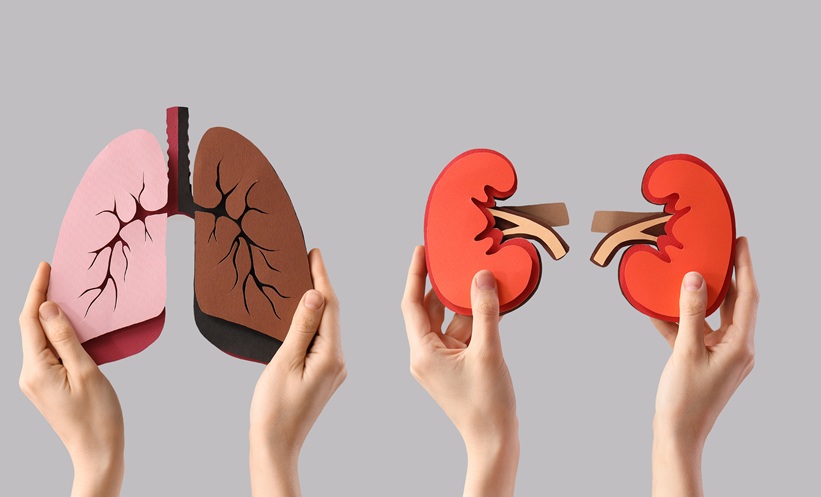PULMONARY arterial hypertension (PAH) and chronic thromboembolic pulmonary hypertension (CTEPH) are known to impair right heart function, but the extent and reversibility of associated kidney problems have remained unclear. Now, a large pooled analysis suggests that renal dysfunction is common in these patients, strongly linked to worse outcomes, and only modestly improved with pulmonary hypertension therapy.
Researchers conducted an individual participant data meta-analysis of 6,694 participants from 18 Phase III randomised clinical trials of approved pulmonary hypertension treatments. All participants’ kidney function was assessed using the race-neutral 2021 CKD-EPI equation to calculate estimated glomerular filtration rate (eGFR). Investigators examined both baseline prevalence of kidney impairment and changes following treatment over 12–16 weeks.
At baseline, the average age was 49.6 years, with 78% of participants female and 58% diagnosed with idiopathic PAH. Thirteen and a half percent (907 participants) had reduced kidney function, defined as an eGFR <60 mL·min−1·1.73 m². Lower baseline eGFR was significantly correlated with worse haemodynamics, specifically, higher mean right atrial pressure (mRAP) and lower cardiac index. Patients with lower eGFR also faced a substantially higher mortality risk: each 10 mL·min−1·1.73 m² reduction in baseline eGFR increased the hazard of all-cause death by 16%.
Treatment-related haemodynamic improvements only translated into minimal kidney gains. A 10 mmHg drop in mRAP was linked to just a 1.7 mL·min−1·1.73 m² rise in eGFR, while a 1 L·min−1·m² increase in cardiac index was associated with a 1.4 mL·min−1·1.73 m² rise. Overall, pulmonary hypertension therapy produced a small but statistically significant improvement in kidney function of 2.0 mL·min−1·1.73 m² after 12–16 weeks.
These findings suggest that while PAH and CTEPH treatments improve cardiac function, they do little to reverse coexisting renal dysfunction in the short term. Given that even mild kidney impairment significantly worsens prognosis, the authors argue that early recognition and proactive management of renal health should be a clinical priority in pulmonary hypertension care.
Reference
Meservey A et al. Renal dysfunction and outcomes in pulmonary arterial hypertension and chronic thromboembolic pulmonary hypertension: an individual participant data meta-analysis. Eur Respir J. 2025;66(2):2402400.








